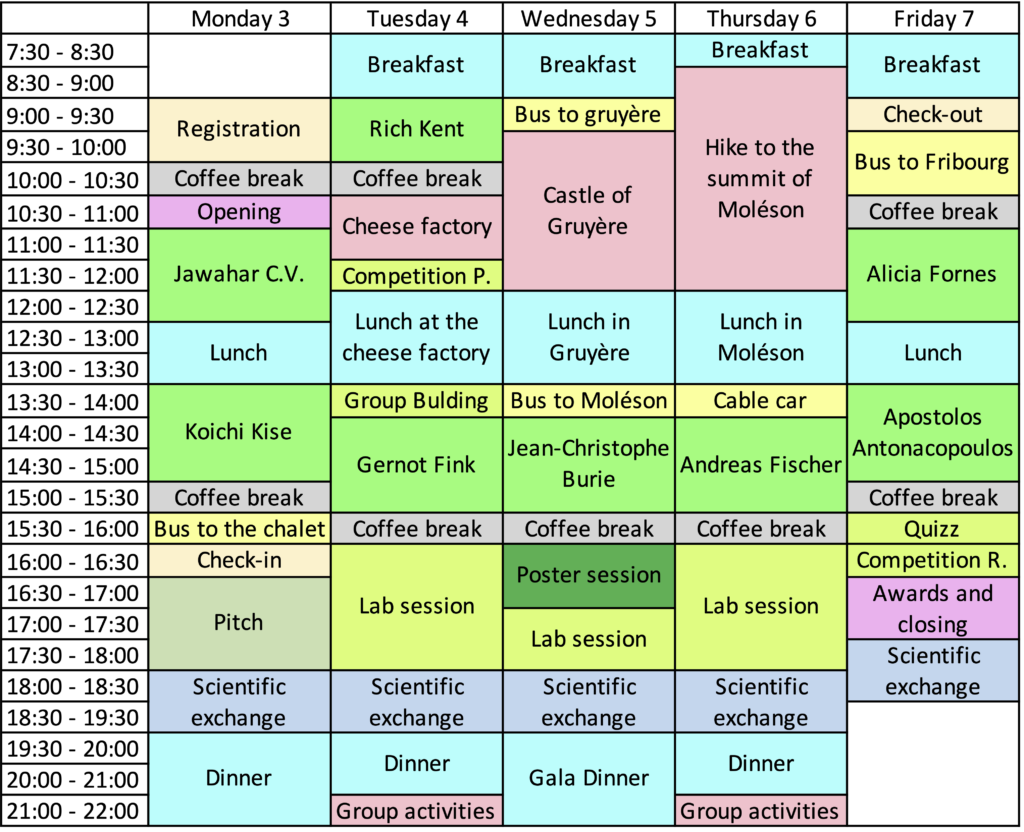The summer school is a 5 days in-person event from Monday, July 3, at 10:30 to Friday, July 7, at 18:00. It will start and finish at the University of Fribourg, room G130. Program is present at the end of the page.
Invited speakers
Participants will benefit from lectures given by experienced researchers from several fields of document analysis. Below an alphabetic list of lecturers and their title presentation:
- Prof. Apostolos Antonacopoulos, University of Salford, United Kingdom: Large-scale Recognition of Information-rich Documents: From Unreadable Data to Structured Information.
- Prof. Jean-Christophe Burie, University of La Rochelle, France: Analysis and understanding of comics: From the detection of basic elements to the creation of semantic links with classic and deep learning-based approaches
- Prof. Gernot Fink, TU Dortmund University, Germany: Deep Learning for Word Spotting: Foundations and Current Developments
- Prof. Andreas Fischer, University of Fribourg and University of Applied Sciences and Arts Western Switzerland: Graph-based pattern recognition for document image analysis – from classical matching methods to geometric deep learning
- Prof. Alicia Fornès, CVC and Universitat Autònoma de Barcelona, Spain: Handwriting Recognition in Low Resource Scenarios
- Prof. C.V. Jawahar, International Institute of Information Technology Hyderabad, India
- Prof. Koichi Kise, Osaka Prefecture University, Japan: Reading of Reading for Actuating: Augmenting Human Learning by Experiential Supplements.
We are pleased to welcome Rich Kent, CTO of Taina as industrial talk: You can’t hide from tax anymore!, A real world example of how one company has used document analysis and recognition to change the tax industry
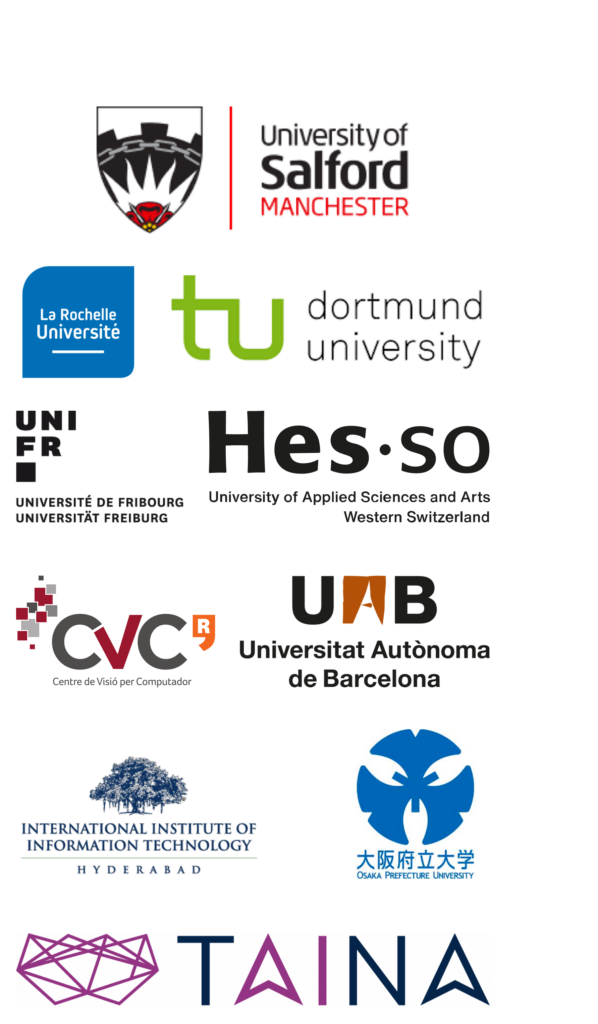
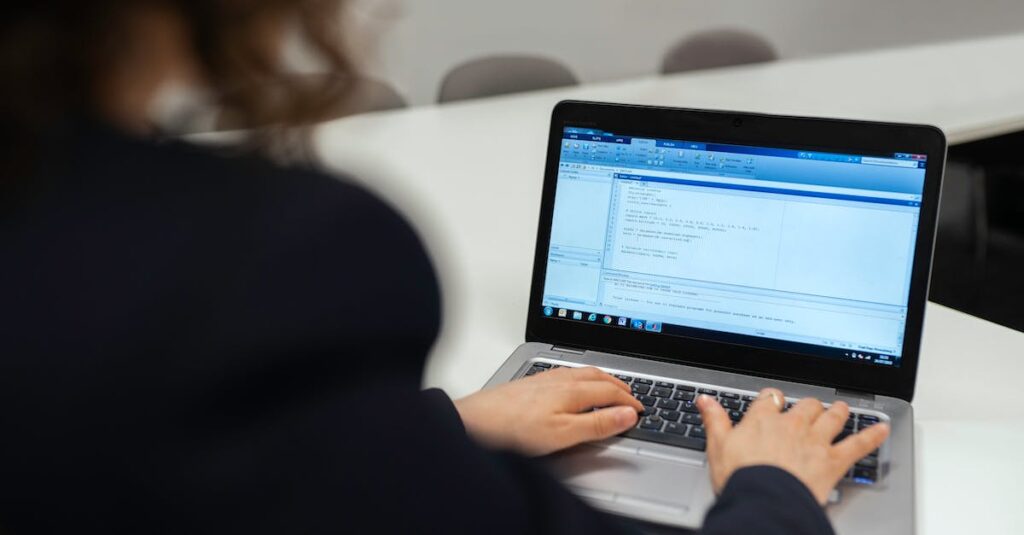
Practical Lab Sessions
We plan to hold a competition during the lab sessions. The idea is to provide a real-world dataset and ask the participants to solve a document analysis task. Participants will be able to solve it in teams of 2 to 4 persons. They will not have access to the dataset in advance to give everyone an equal chance. To even the playing field, students who do not have access to a GPU will be able to use Google Colab. On Tuesday, the competition will be presented. Each group will present its work on Friday, and the results will be announced.
Pitch session
On the first day, each participant will present themselves in a pitch of 1-3 minutes with one and only one slide. This pitch session should be a great way for the participants to get to know each other and to share their interests. The participants have to answer the following questions during their pitch: Who am I? Why do I attend this school? What is the topic of my research? A template for the slide is given in the picture on the left. Please upload your slide here, then ssda2023 before Monday 3 at 13:00.
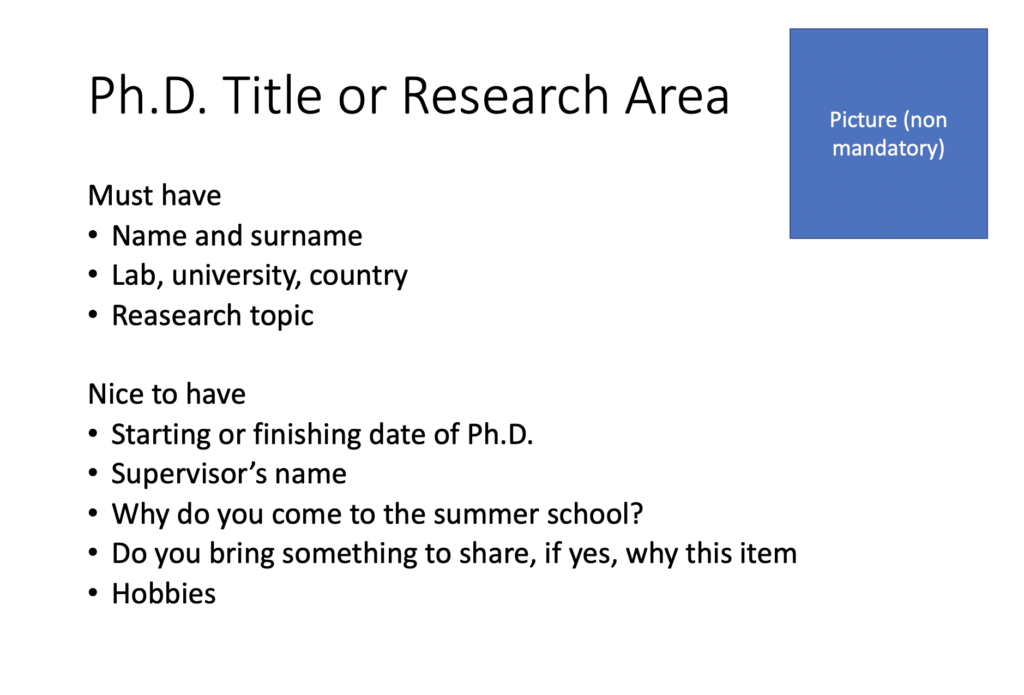
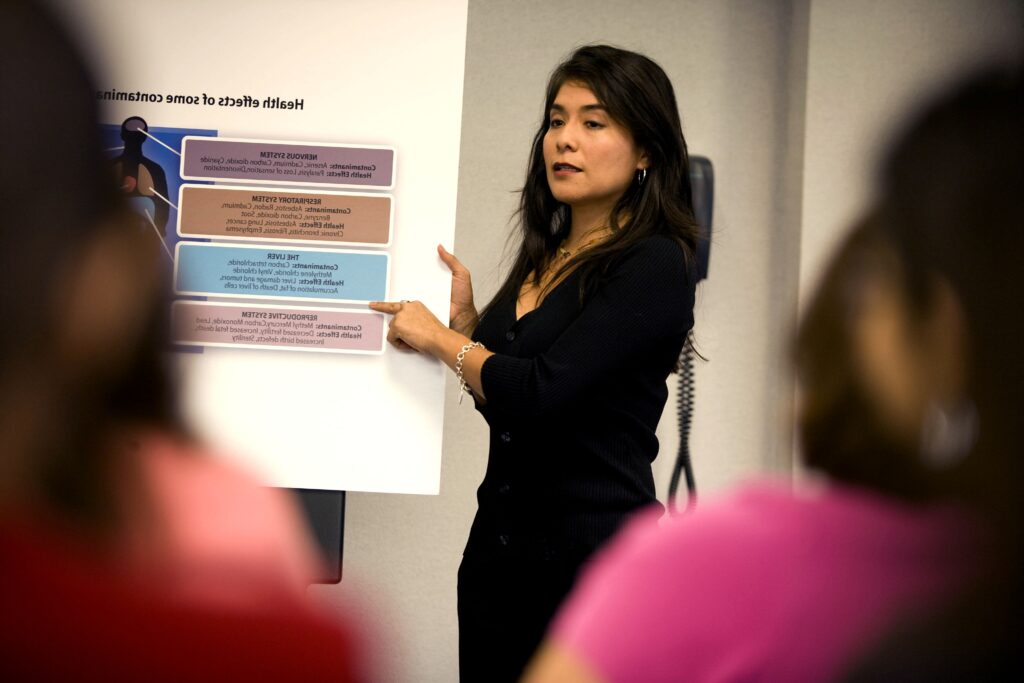
Poster Guidelines
Poster session: One poster session will be organized. Each participant will present their research and receive at least one question from an invited speaker. We encourage participants to show live demos of their work if possible. The posters will stay in the main room during the whole event.
The poster session will be held on Wednesday July 5th at 4pm. The group will be split, giving each attendee half an hour to present his work and another half an hour to engage in other participants posters. Additionally, all keynote speakers are encouraged to give valuable feedback.
While each participant is free on what to present on the poster, we appreciate one of the following options depending of your advancement:
- Plan for a PhD project (problematic, challenges, methods, data)
- Summary of the most relevant publication
- Current progress towards the final dissertation.
Posters should be A0 Portrait size, printed in portrait mode.
Awards
Two awards will be presented: The Best Poster Award and the Excellence Award. The winner of the Best Poster Award will be selected based on the quality of the poster characterized by excellence in research and clarity in presentation. The winner of the Excellence Award will be selected among the participants for their knowledge, collaboration ability and his work in the competition. A specific committee will be formed for each award among invited speakers and members of the organizing committee. The recipients of the awards will receive a financial reward of 150 CHF. The awards will be presented on the last day during the closing ceremony.
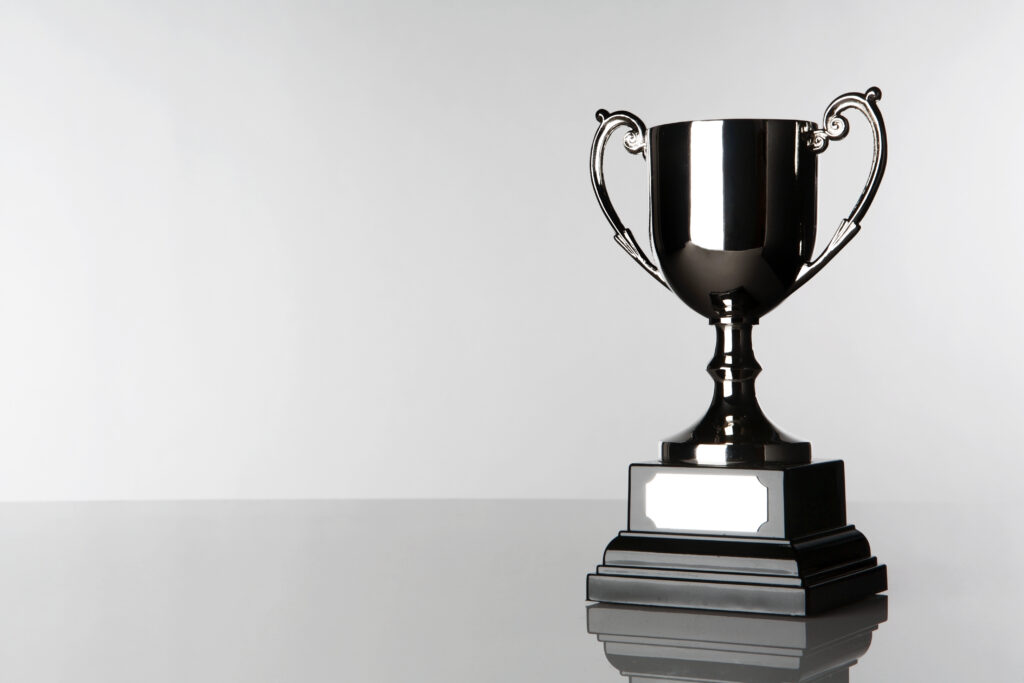
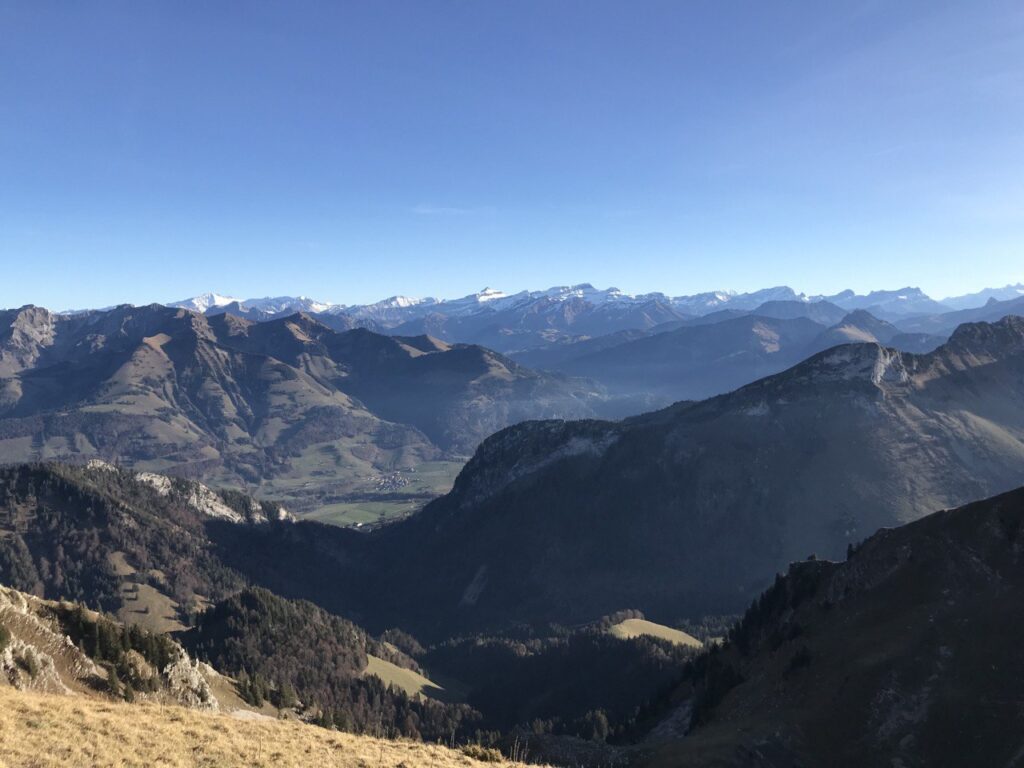
Social Activities
Besides the scientific and practical content, several social activities will be organized. They are likely to change depending on the weather or the number of participants. In any case, common activities will take place.
As a suggestion, we could visit an alpine cheese factory located next to the chalet, visit the medieval town of Gruyère and its castle as well as a panoramic walk up to 2000 meters of altitude.
After the lab sessions, we will have a time of exchange in the chalet over a glass. Participants are encouraged to attend but can also continue programming or go to their room to rest.
In the evening, there will be group games, related or not to document analysis, for those who wish to join.
Program Outline
The program below is tentative and is subject to change.
